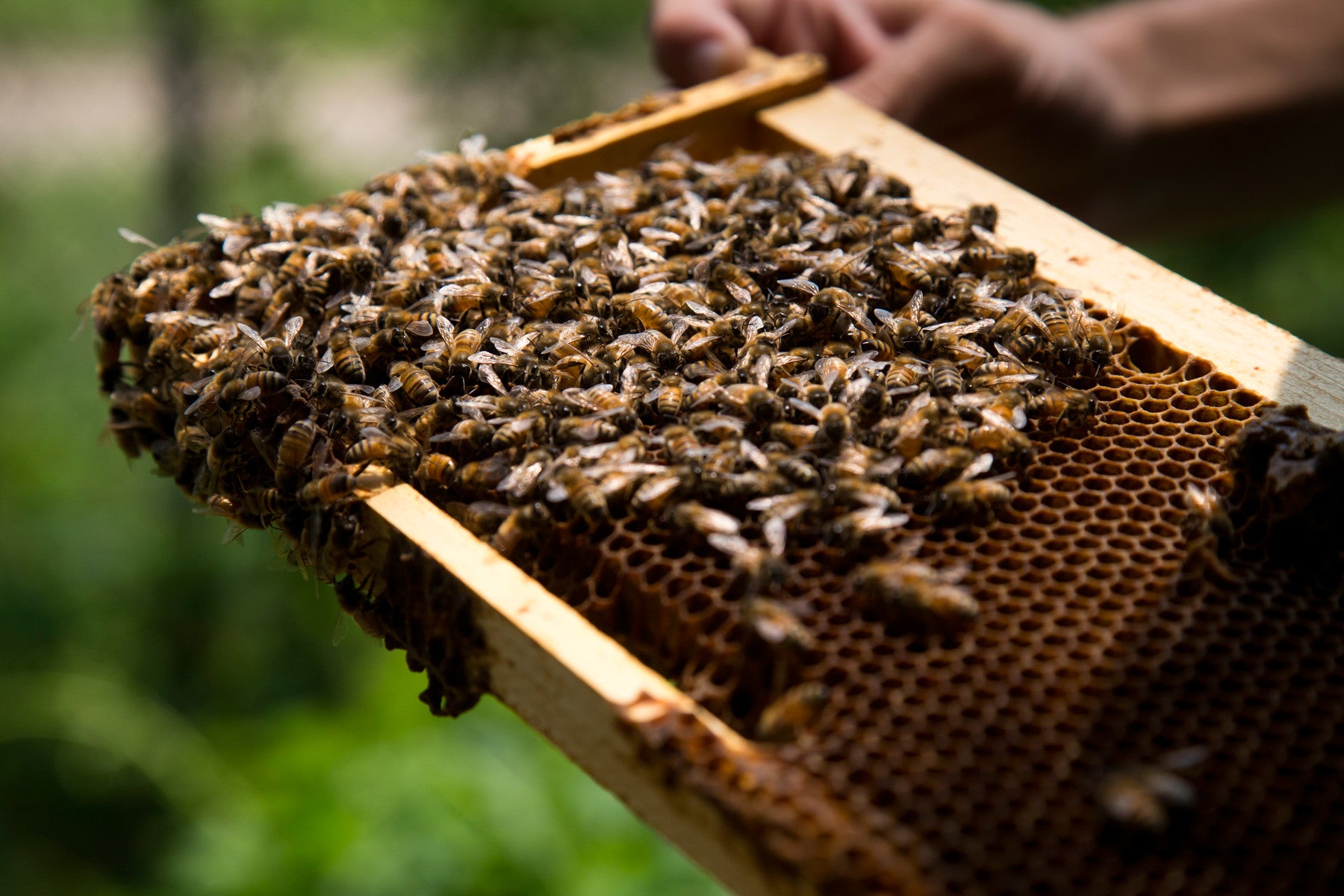As the mission to save the bees grows across the country, the crew at Nectar continues to connect with other organizations joining the cause through their own distinct niches.

One inspiring example is Ellie Symes, who after apprenticing with an Ohio beekeeper the summer after her freshman year in college, returned to Indiana University with an idea to start student-run beehives.
“I immediately caught the bee fever and was interested in helping to solve the issue with honeybees,” says Symes.
She won a grant to get started, began a campus beekeeping club and with an innovative business plan to “combat colony decline through data collection and analysis,” won the $100,000 grand prize from IU’s Building Entrepreneurs in Science & Technology competition, the first “benefit corporation” to win the coveted competition.
We caught up with Symes to hear what The Bee Corp is up to today.

Explain how The Bee Corp works.
The Bee Corp uses sensors and data analytics to monitor the health of beehives to reduce hive loss. The company’s first product, Queen’s Guard, lets beekeepers know when the health of the queen bee fails, so they can intervene on time.
Why are bees getting so much buzz these days?
Since honeybees pollinate a third of the food in the U.S., this is a problem that affects everyone. Awareness about colony loss has been increasing, which is good for beekeepers!
Give us an example of a customer you’re helping right now.
Our customers range from backyard to commercial beekeepers. Our product is usually outfitted in all their hives, and 8% of our customers’ hives have needed our alert in the first month of service. You can check out what people are saying about our solutions here.
How can other people join the honeybee cause?
Support your local beekeepers by buying honey or other products directly from them—usually at farmer’s markets. Also, volunteer at local community gardens and plant pollinator gardens at home to increase pollinator habitat!



